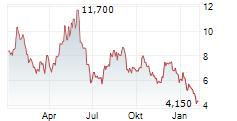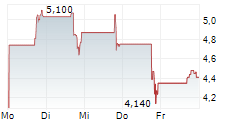Phase 2 study showed a doubling of the survival rate of metastatic pancreatic cancer patients at Year 1, an unprecedented outcome
Technology is seen as transformative in increasing the effectiveness of treatment for a wide range of cancers
CHICAGO, IL AND FORT WORTH, TX / ACCESS Newswire / August 25, 2025 / Vexing challenges await cancer researchers every day -- not just in finding new molecules -- but now, increasingly, in finding new ways to make tumors more vulnerable to existing drugs.
Tumors have their own defense mechanisms, designed to thwart therapeutic intruders, and the immune system is often unable to mount an effective response.

Dozens of companies are working in this area but Actuate Therapeutics (NASDAQ:ACTU) reports it has made more progress than any other, especially when it comes to difficult-to-treat tumors like metastatic ductal pancreatic cancer.
One current standard of care for this diagnosis is gemcitabine combined with nab-paclitaxel, a drug developed 13 years ago by Celgene as Abraxane (now owned by Bristol-Myers Squibb (BMY). It won FDA approval after a Phase 3 trial showed that the combination (generically called GnP) increased overall survival of metastatic pancreatic cancer patients by nearly two months (8.5 vs. 6.7) compared to gemcitabine alone.
GnP still remains one of the most widely prescribed front-line chemotherapeutics for pancreatic cancer, with $1.8 billion in sales last year.
In cancer research, building on key advances can be a productive strategy.
So, armed with that idea and a large body of preclinical and mechanistic data, Actuate created a program that would add a third agent -- its GSK-3ß inhibitor elraglusib (elra) - to the GnP combination with the goal of creating a new first-line therapy that could achieve better outcomes than GnP alone in the setting of metastatic pancreatic cancer.
Game-Changing Results
The plan paid off. At this year's ASCO, Actuate reported positive topline results of a 286-patient Phase 2 clinical trial of elra+GnP in metastatic ductal pancreatic cancer patients randomized 2:1 to elra+GnP or GnP alone.
--For patients in the elra+GnP arm, median overall survival increased by almost three months to 10.1 months vs 7.2 months for GnP alone, with an overall 37% reduction in the risk of death.
--44.1% of patients in the elra+GnP arm were alive at Year 1, double the number (22.3%) in the GnP alone arm.
The results suggest a promising end to a 13-year drought of major advances in treating metastatic pancreatic cancer, and the potential of a new platform for boosting drug performance in many other malignancies.
A layman's explanation of what is happening might read something like this: elra appears to have the ability to make cold tumors hot/more visible to the patient's immune system, amping up a targeted immune response and downregulating the tumor's natural defenses, enabling anti-cancer agents to penetrate tumors and kill malignant cells faster and deeper than previously possible. Such features may also finally make checkpoint immune therapy effective in pancreatic tumors, typically among the "coldest" of all.
With Notable Durability
The benefits of Actuate's elra were also compelling at 18 and 24 months. The 18-month survival rate was 19.7% for the elra+GnP arm vs. 4.4% for the GnP alone arm. At 24 months, 13.8% of patients in the elra+GnP arm were alive vs. none in the GnP alone arm. There were even some cases in which investigators said patients on elra+GnP became eligible for Whipple procedures, complex surgeries to remove the head of the pancreas. That's typically not the case for patients getting chemotherapy alone.
"Based on the clear clinical benefit and a well-tolerated safety profile, we intend to engage with the FDA and EMA in the months ahead to align on a path for registration and commercialization of what we believe is a transformative, first-in-class platform therapy for patients with an urgent unmet need in a broad range of cancers", said Daniel Schmitt, Actuate's CEO.
Tumor biopsies from elra-treated patients support that belief - they showed increased CD8-positive and granzyme B-positive T cells, increased NK cells and decreased myeloid-derived suppressor cells vs. control patients, demonstrating elra's proposed immune modulating mechanism of action that could potentially amp up the effectiveness of a wide range of cancer therapies.
Actuate believes the data suggest that elra provides the first new mechanism of action in over a decade for treating metastatic pancreatic cancer. It works by inhibiting GSK-3ß, an enzyme needed for cell survival and proliferation. The enzyme also makes cells resistant to chemotherapy. By inhibiting GSK-3ß, elra has been shown to stop the cancer cells from spreading and surviving.
Elra's safety profile allows it to be combined with existing chemotherapies like GnP. Studies at Massachusetts General Hospital and other clinics using elra with other chemotherapy combinations report no additional significant toxicity issues, according to the company.
Although the Celgene-developed GnP cocktail was an important advance and remains a standard of care for metastatic pancreatic cancer, less than 10% of patients on the combo therapy live for 5 years after diagnosis, which indicates just how tough it is to get most patients past the one year mark, notes Tanios "Toni" Bekaii-Saab, MD and Chairman for the Division of Hematology/Medical Oncology at the Mayo Clinic. "There is no other cancer like that. So, this is a cancer that desperately needs improvement."
Beyond Pancreatic Cancer
While Actuate's lead program is focused on treating metastatic pancreatic cancer, it's not the only cancer the company is targeting. Elra's antitumor properties and potential to modify the immune system to fight cancer cells make it a viable candidate as a building block to combine with other drugs for additional cancers, such as colorectal, melanoma, and Ewing sarcoma.
Colin D. Weekes, MD, PhD - Director, Medical Oncology Research for Pancreatic Cancer at Massachusetts General Hospital, made that point at the Actuate-sponsored KOL event following the ASCO data presentation when he suggested that elra could become a backbone platform you can add to, much like clinicians view RAS inhibitors. "How can you potentially add this to that? If you look at pancreas cancer drug development, immunotherapy is not working, but maybe we have some hints that there's a backbone here that you add on to. I think there's a platform that you can build upon-we didn't have that platform, I think, prior to what we saw today."
Agnostic Potential
Underscoring elra's ability to work in combination with other treatments, Actuate just announced plans for a Phase 1b trial of elra in combination with Incyte Corporation's (INCY) PD-1 inhibitor retifanlimab and modified FOLFIRINOX (mFOLFIRINOX) as frontline therapy in advanced pancreatic adenocarcinoma. The trial is being conducted in collaboration with UPMC Hillman Cancer Center and Incyte.
"The collaboration with UPMC Hillman Cancer Center and Incyte enables us to explore new synergistic opportunities for patients who have not yet received systemic therapy and builds on the momentum of our ongoing clinical programs", said Mr. Schmitt, Actuate's CEO. "The study further allows us to assess ways to optimize elraglusib's potential through a complementary multi-agent approach designed to enhance both efficacy and durability of response."
Metastatic pancreatic cancer is a hard-to-treat form of cancer with a low survival rate. It's in need of new treatments, and Actuate's elra holds that promise. With trials underway, this is one cancer-focused clinical-stage biopharmaceutical company worth paying attention to.
Featured image from Shutterstock.
This post contains sponsored content. This content is for informational purposes only and not intended to be investing advice.
Click here for more information on Actuate Therapeutics.
Contact:
Investor Relations
info@actuatetherapeutics.com
Forward-Looking Statements:
This posting contains forward-looking statements about us, including our and other parties' clinical trials and development plans, and our industry. The words "anticipate," "believe," "continue," "could," "estimate," "expect," "intend," "may," "might," "ongoing," "plan," "potential," "predict," "project," "should," "target," "will," "would," or the negative of these terms or other comparable terminology are intended to identify forward-looking statements, although not all forward-looking statements contain these identifying words. All statements, other than statements related to present facts or current conditions or of historical facts, contained in this posting are forward-looking statements. Accordingly, these statements involve estimates, assumptions, substantial risks and uncertainties which could cause actual results to differ materially from those expressed in them, including but not limited to that preliminary and unpublished data may be subject to change and further interpretation following the availability of more data or following a more comprehensive review of the data and should not be relied upon as a final analysis; clinical and preclinical drug development involves a lengthy and expensive process with uncertain timelines and outcomes, results of prior preclinical studies, early clinical trials and sub-group studies are not necessarily predictive of future results and may not correlate with improved responses, and elraglusib may not achieve positive clinical results or favorable preclinical results or receive regulatory approval on a timely basis, if at all; that we may not successfully enroll additional patients or establish or advance plans for further development, including through conversations with the FDA or EMA and the standards such bodies may impose for such development; that elraglusib could be associated with side effects, adverse events or other properties or safety risks, which could delay or preclude regulatory approval, cause us to suspend or discontinue clinical trials or result in other negative consequences; our reliance on third parties to conduct our non-clinical studies and our clinical trials; our reliance on third-party licensors and ability to preserve and protect our intellectual property rights; that we face significant competition from other biotechnology and pharmaceutical companies; our ability to fund development activities, including because our financial condition raises substantial doubt as to our ability to continue as a going concern and we require additional capital to finance our operations beyond the second quarter of fiscal year 2025, and a failure to obtain this necessary capital in the near term on acceptable terms, or at all, could force us to delay, limit, reduce or terminate our development programs, commercialization efforts or other operations. In addition, any forward-looking statements are qualified in their entirety by reference to the factors discussed under the heading "Item 1A. Risk Factors" in our Annual Report on Form 10-K for the year ended December 31, 2024, filed with the SEC on March 13, 2025, and our Quarterly Report on Form 10-Q for the quarter ended March 31, 2025, filed with the SEC on May 15, 2025, and other filings with the SEC. Because the risk factors referred to above could cause actual results or outcomes to differ materially from those expressed in any forward-looking statements made by us or on our behalf, you should not place undue reliance on any forward-looking statements. Further, any forward-looking statement speaks only as of the date on which it is made. New factors emerge from time to time, and it is not possible for us to predict which factors will arise. In addition, we cannot assess the impact of each factor on our business or the extent to which any factor, or combination of factors, may cause actual results to differ materially from those contained in any forward-looking statements. Unless legally required, we do not undertake any obligation to release publicly any revisions to such forward-looking statements to reflect events or circumstances after the date of this posting or to reflect the occurrence of unanticipated events.
SOURCE: Actuate Therapeutics, Inc.
View the original press release on ACCESS Newswire:
https://www.accessnewswire.com/newsroom/en/biotechnology/actuate-therapeutics-advances-a-new-era-in-oncology-with-potential-universal-backbone-1064578


